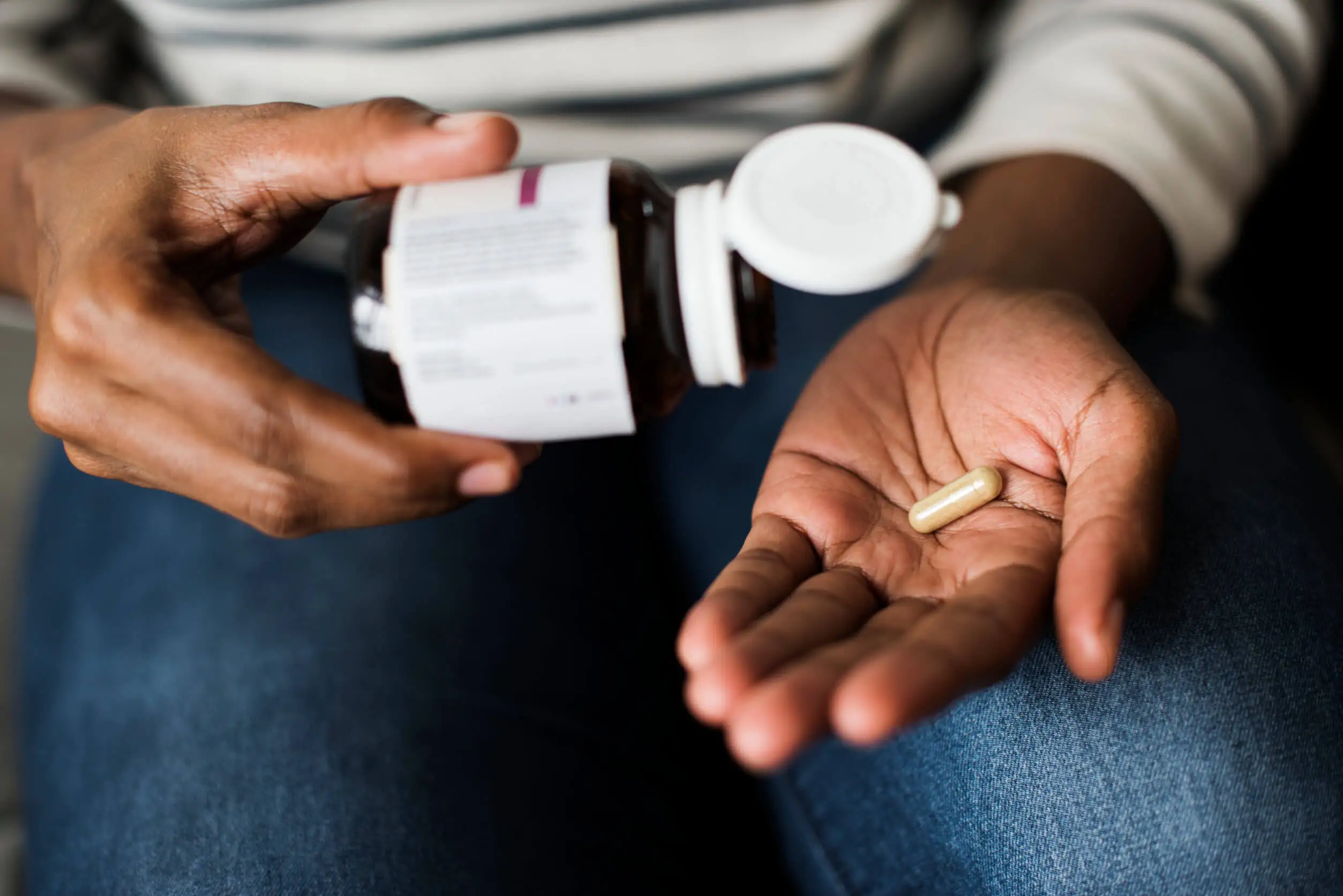Sea Buckthorn: Learn The Health Benefits


Reviewed and approved by the pharmacist Franciele Rohor de Souza
The sea buckthorn – scientific name Hippophae rhamnoides – is a thorny shrub native to China and some parts of Europe. It belongs to the Eleagnaceae family and is characterized by its woody branches composed of elongated leaves and small thorns. It also has flowers in greenish tones and small spherical fruits with a striking bright orange color.
The latter are harvested when they reach a good degree of maturity and are subsequently used for gastronomic and medicinal purposes. In fact, an oil can be obtained from its pulp and seeds which has several interesting applications as a natural remedy and cosmetic. In this article, we’ll tell you more about its properties.
The main active compounds of sea buckthorn
Before detailing the uses and benefits of sea buckthorn, it’s worth highlighting its main components. As compiled by a publication in the journal Antioxidants, these comprise the following:
- Vitamins A, B, C, K, and E
- Essential minerals (iron, magnesium, copper, zinc, sodium, potassium, phosphorus, calcium, nitrogen, and manganese)
- Phytosterols
- Essential fatty acids, such as palmitic, linoleic, and alpha-linolenic
- Amino acids (threonine, valine, methionine, leucine, lysine, tryptophan, isoleucine, phenylalanine, among others)
- Phenolic compounds, such as glycosides, flavonoids, and phenolic acids
- Mucilages
We think you may be interested in reading this, too: Black Truffle: What Is It and What Are Its Health Benefits?
Sea buckthorn health benefits
In traditional medicine, sea buckthorn leaves, flowers, seeds, and berries have been used as a supplement to mitigate various health problems. And while most uses are supported only by anecdotal evidence, some research suggests that it does have potential in the prevention and treatment of some diseases. So, what are its potential benefits?
Sea buckthorn helps fight fatigue
Due to its rich supply of vitamins, minerals, and essential amino acids, sea buckthorn is used as a natural supplement to fight fatigue. In particular, its berries are used to reduce fatigue and muscle weakness.
In addition, a study reported in the Journal of the Science of Food and Agriculture reported that aqueous extracts of the leaves of this plant have the potential to improve physical fitness and protect against oxidative damage caused by exhaustive exercise.
For now, more studies are needed. However, it’s certain that parts of this plant are nutritious and may be useful as revitalizers.

It helps support heart health
The essential fatty acids, flavonoids, vitamins, and minerals in sea buckthorn fruit are beneficial to heart health. Research reported in Lipids in Health and Disease linked its intake with increased levels of high-density lipoproteins, i.e., the “good” cholesterol.
In healthy people, these lipids are linked to heart protection. In addition, its antioxidants help inhibit the negative effects of oxidative stress, which not only increase the level of inflammation but are linked to chronic diseases of the cardiovascular system, such as atherosclerosis.
It has positive effects on vaginal atrophy
Vaginal atrophy or dryness is a common symptom among women who reach the menopausal stage. Its appearance is related to the decrease in estrogen levels, which decreases the natural lubrication of the vagina.
Although there are several treatments against this symptom – such as vaginal moisturizers or hormone replacement therapy -, the consumption of supplements with phytoestrogens also helps. Regarding this, a 2014 study reported that sea buckthorn oil helped improve vaginal health in postmenopause.
The researchers suggest that the phytoestrogens in this ingredient have potential as a supplement for estrogen replacement. However, more evidence is lacking.
It helps care for hair
The oil obtained from sea buckthorn concentrates lipids, amino acids, and micronutrients that strengthen hair health. A study shared in the journal Antioxidants suggests that this is an ingredient widely used in the cosmetic industry, especially in hair treatments.
It’s recommended for its ability to reduce excess oil on the scalp and to protect against damage or breakage of the strands. In fact, it’s a common ingredient in several brands of shampoos.
It protects skin health
There are several reasons why sea buckthorn protects skin health. First, its abundant antioxidant content mitigates the negative impact of free radicals, which reduces the tendency to premature aging.
Second, its anti-inflammatory, moisturizing, and regenerative properties help care for the skin barrier. Even, as detailed in a study in Lipids in Health and Disease, it decreases the risk of skin disorders.
Studies detail that sea buckthorn oil serves as an adjunct to combat acne, eczema, and certain skin infections. It’s also a common ingredient in anti-aging cosmetics.
Other possible benefits of sea buckthorn
Due to its richness in bioactive compounds, it’s not surprising that sea buckthorn is linked to other health benefits. However, it should be noted that this is merely a supplement and not a treatment of first choice.
Evidence is still limited, so it should be used with caution. Let us look at other uses:
- Digestive disorders: Due to its mucilage and antioxidant content, sea buckthorn is used as an ally for digestive health. It’s often used against indigestion, gastritis, diarrhea, and constipation.
- Respiratory health: The vitamin C, flavonoids and minerals in this ingredient strengthen the immune system and help reduce the risk of respiratory infections, such as influenza.
- Liver disease: Although not a first-line treatment for liver disorders, research suggests that sea buckthorn has pharmacological potential against liver fibrosis. In addition, it serves as a hepatoprotective agent.
- Antitumor potential: The phytoconstituents of this plant are linked to an antitumor and chemopreventive effect. However, more evidence is needed.
- Overweight and obesity: Although it’s not a miracle supplement against excess weight, its nutrients are positive to supplement the diet. Studies link its properties to the prevention of obesity induced by a high-fat diet and metabolic disorders.
The risks and contraindications of sea buckthorn
The intake of sea buckthorn as a type of food is generally safe for most people. In fact, supplements derived from the shrub and its fruits tend to be well tolerated.
Despite this, some people may experience unwanted reactions:
- Patients with high blood pressure are at risk for headaches, dizziness, and heart rhythm disturbances after ingesting sea buckthorn supplements.
- Topical use may cause rash or allergy in people with sensitive skin. It’s important to do a small patch test before using it in its entirety.
- Oral consumption of sea buckthorn oil may cause digestive discomfort. If so, its use should be discontinued.
- It shouldn’t be consumed simultaneously with anticoagulants, antidiabetics, drugs for autoimmune disorders, or medications for liver disease.
- It’s contraindicated for pregnant or breastfeeding women. It should also not be ingested by patients with chronic diseases, unless authorized by a physician.
Sea buckthorn supplements are not regulated by the U.S. Food and Drug Administration (FDA). Therefore, they should be purchased from a reputable store and the label should be checked.

Sea buckthorn natural remedies
Sea buckthorn remedies are prepared from both its leaves and fruits. The supplements available are usually in the form of capsules, syrups, teas, tinctures, oils, and topical ointments. The mode of use may vary from one presentation to another; therefore it’s necessary to consult the label.
Of course, at a general level, there are some consumption recommendations. These are detailed below:
- An infusion of dehydrated sea buckthorn fruits: 2 to 3 cups per day (500 to 750 milliliters per day).
- A natural juice using sea buckthorn fruits: one glass per day (200 milliliters).
- A tincture: 20 to 50 drops, divided into 3 doses per day.
- Oil: 1 teaspoon (5 milliliters). For external use, mix it with a carrier oil (olive, coconut, almond, etc.).
Like this article? You may also like to read: The Health Benefits of Water with a Tablespoon of Apple Cider Vinegar
An infusion with sea buckthorn
The infusion of sea buckthorn is ideal to increase your energy levels and strengthen your defenses. It even serves as an adjunct to support the treatment of anemia.
The ingredients are as follows:
- 50 grams of sea buckthorn berries
- 30 grams of blueberries
- 10 grams of horsetail
- 500 milliliters of water
Follow this step-by-step guide:
- Bring the water to a boil and, when it comes to a boil, add the remaining ingredients.
- Cover the infusion and let it steep for 10 to 15 minutes.
- Divide it to take 2 or 3 servings a day.
Did you know that sea buckthorn fruits are also used in gastronomy? They can be prepared as jams, smoothies, fruit purees, sauces for meats, among others.
What to remember about sea buckthorn
In natural medicine, sea buckthorn is valued for its abundant content of antioxidants, vitamins, minerals, and proteins, among other nutrients. It’s used to protect heart health, skin, and digestive system.
However, the evidence is still limited. Therefore, it’s only suggested as a supplement.
In any case, it’s generally safe and well-tolerated. It can be included in various recipes or can be taken as a commercial supplement.
All cited sources were thoroughly reviewed by our team to ensure their quality, reliability, currency, and validity. The bibliography of this article was considered reliable and of academic or scientific accuracy.
- Jaśniewska A, Diowksz A. Wide Spectrum of Active Compounds in Sea Buckthorn (Hippophae rhamnoides) for Disease Prevention and Food Production. Antioxidants (Basel). 2021 Aug 12;10(8):1279. doi: 10.3390/antiox10081279. PMID: 34439527; PMCID: PMC8389226.
- Tiitinen KM, Hakala MA, Kallio HP. Quality components of sea buckthorn (Hippophae rhamnoides) varieties. J Agric Food Chem. 2005 Mar 9;53(5):1692-9. doi: 10.1021/jf0484125. PMID: 15740060.
- Zheng X, Long W, Liu G, Zhang X, Yang X. Effect of seabuckthorn (Hippophae rhamnoides ssp. sinensis) leaf extract on the swimming endurance and exhaustive exercise-induced oxidative stress of rats. J Sci Food Agric. 2012 Mar 15;92(4):736-42. doi: 10.1002/jsfa.4634. Epub 2011 Sep 26. PMID: 21953402.
- Zielińska A, Nowak I. Abundance of active ingredients in sea-buckthorn oil. Lipids Health Dis. 2017 May 19;16(1):95. doi: 10.1186/s12944-017-0469-7. PMID: 28526097; PMCID: PMC5438513.
- Larmo, P. S., Yang, B., Hyssälä, J., Kallio, H. P., & Erkkola, R. (2014). Effects of sea buckthorn oil intake on vaginal atrophy in postmenopausal women: A randomized, double-blind, placebo-controlled study. In Maturitas (Vol. 79, Issue 3, pp. 316–321). Elsevier BV. https://doi.org/10.1016/j.maturitas.2014.07.010
-
Tkacz K, Wojdyło A, Turkiewicz IP, Bobak Ł, Nowicka P. Anti-Oxidant and Anti-Enzymatic Activities of Sea Buckthorn (Hippophaë rhamnoides L.) Fruits Modulated by Chemical Components. Antioxidants (Basel). 2019 Dec 4;8(12):618. doi: 10.3390/antiox8120618. PMID: 31817215; PMCID: PMC6943611.
- Solà Marsiñach M, Cuenca AP. The impact of sea buckthorn oil fatty acids on human health. Lipids Health Dis. 2019 Jun 22;18(1):145. doi: 10.1186/s12944-019-1065-9. PMID: 31228942; PMCID: PMC6589177.
- Shah, R., Idate, A., Ugale, V., & Poorva (2021). Comprehensive review on sea buckthorn: Biological activity and its potential uses. The Pharma Innovation.
- Gâtlan AM, Gutt G. Sea Buckthorn in Plant Based Diets. An Analytical Approach of Sea Buckthorn Fruits Composition: Nutritional Value, Applications, and Health Benefits. Int J Environ Res Public Health. 2021 Aug 26;18(17):8986. doi: 10.3390/ijerph18178986. PMID: 34501575; PMCID: PMC8431556.
- Enkhtaivan G, Maria John KM, Pandurangan M, Hur JH, Leutou AS, Kim DH. Extreme effects of Seabuckthorn extracts on influenza viruses and human cancer cells and correlation between flavonol glycosides and biological activities of extracts. Saudi J Biol Sci. 2017 Nov;24(7):1646-1656. doi: 10.1016/j.sjbs.2016.01.004. Epub 2016 Jan 7. PMID: 30294231; PMCID: PMC6169540.
- Gao ZL, Gu XH, Cheng FT, Jiang FH. Effect of sea buckthorn on liver fibrosis: a clinical study. World J Gastroenterol. 2003 Jul;9(7):1615-7. doi: 10.3748/wjg.v9.i7.1615. PMID: 12854177; PMCID: PMC4615518.
- Ran B, Guo CE, Li W, Li W, Wang Q, Qian J, Li H. Sea buckthorn (Hippophae rhamnoides L.) fermentation liquid protects against alcoholic liver disease linked to regulation of liver metabolome and the abundance of gut microbiota. J Sci Food Agric. 2021 May;101(7):2846-2854. doi: 10.1002/jsfa.10915. Epub 2020 Nov 20. PMID: 33145761.
- Olas B, Skalski B, Ulanowska K. The Anticancer Activity of Sea Buckthorn [Elaeagnus rhamnoides (L.) A. Nelson]. Front Pharmacol. 2018 Mar 15;9:232. doi: 10.3389/fphar.2018.00232. PMID: 29593547; PMCID: PMC5861756.
- Guo C, Han L, Li M, Yu L. Seabuckthorn (Hippophaë rhamnoides) Freeze-Dried Powder Protects against High-Fat Diet-Induced Obesity, Lipid Metabolism Disorders by Modulating the Gut Microbiota of Mice. Nutrients. 2020 Jan 20;12(1):265. doi: 10.3390/nu12010265. PMID: 31968607; PMCID: PMC7020008.
This text is provided for informational purposes only and does not replace consultation with a professional. If in doubt, consult your specialist.








